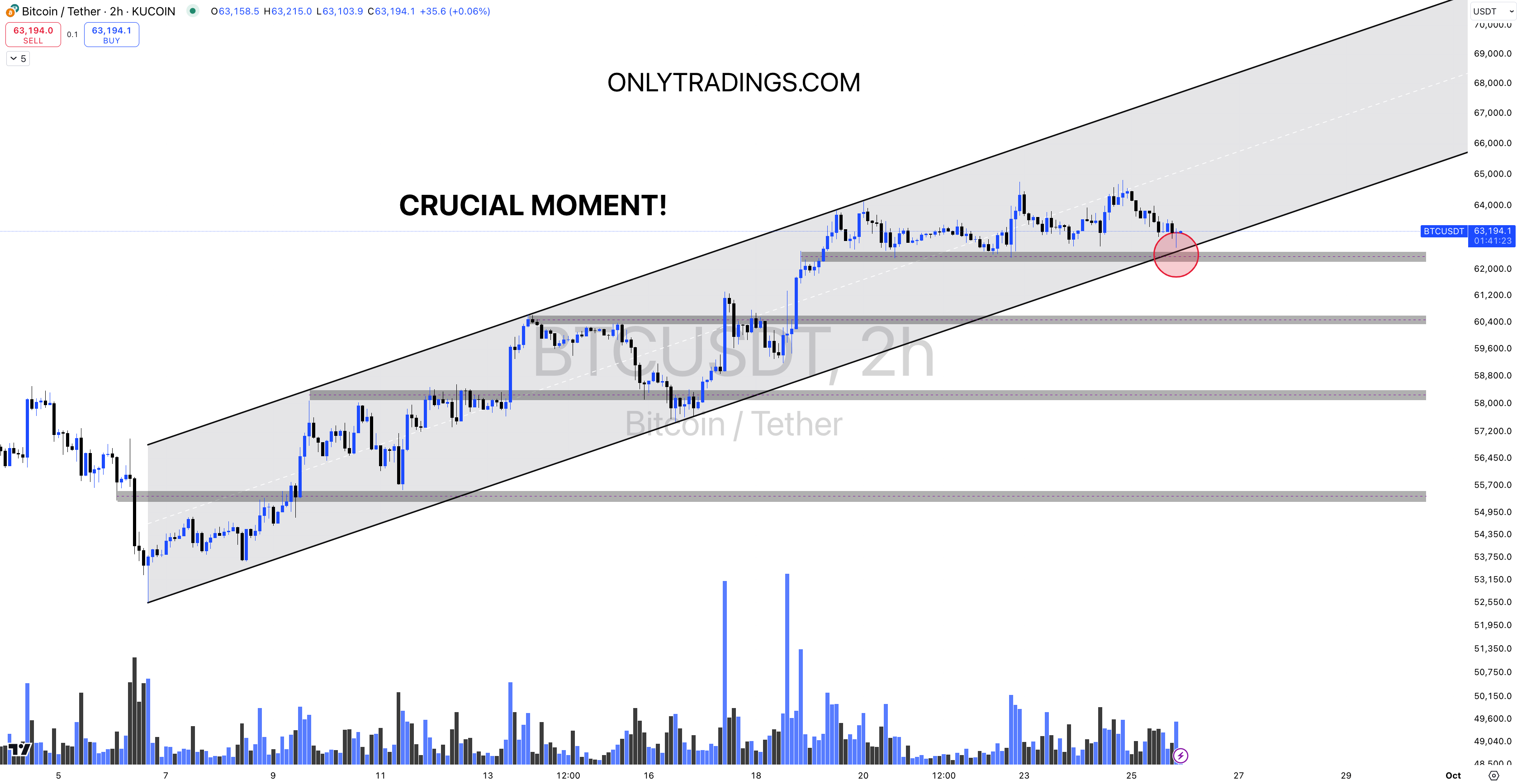BTC/USDT at a Crucial Turning Point:
Will the Support Hold or Break?
Instrument: BTC/USDT
Time Frame: 2 hour
Exchange: KuCoin
Trading Type: Swing Trading

Key Observations:
#1. Ascending Channel:
- The price action is contained within a well-defined ascending channel. The upper and lower bounds of this channel are acting as dynamic resistance and support, respectively.
- Bitcoin is currently testing the lower boundary of this ascending channel, which is a critical support level.
#2. Crucial Moment:
- The text "CRUCIAL MOMENT!" highlights the significance of this point, indicating that the price is at a make-or-break level. A bounce from this level would confirm the continuation of the uptrend within the channel, while a break below would suggest a potential shift in momentum.
#3. Support Levels:
- There are several horizontal support zones marked in the chart, with the current price testing one of these zones around $62,400 to $63,000. This region could act as strong support.
- Additional support levels lie below at approximately $60,000, $58,450, and $57,000, providing potential areas where the price might find buyers if it breaks below the current support.
#4. Potential Scenarios:
- Bullish Scenario: If Bitcoin respects the lower boundary of the channel and the support zone, we could see a bounce back toward the midline or the upper channel boundary, targeting levels around $66,000 to $70,000.
- Bearish Scenario: A decisive break below the lower channel boundary and the immediate support zone (red circle) would invalidate the ascending channel pattern, leading to a possible correction toward lower support zones around $60,000 or even $57,000.
Conclusion:
Bitcoin is at a pivotal moment within its ascending channel. Traders should watch closely for confirmation of either a bounce or a break below the support zone. A sustained move above the lower channel boundary could reinforce the bullish trend, while a break below would signal a potential shift to a bearish trend. Risk management is essential when trading around these critical levels, as volatility could increase in this "crucial moment."

